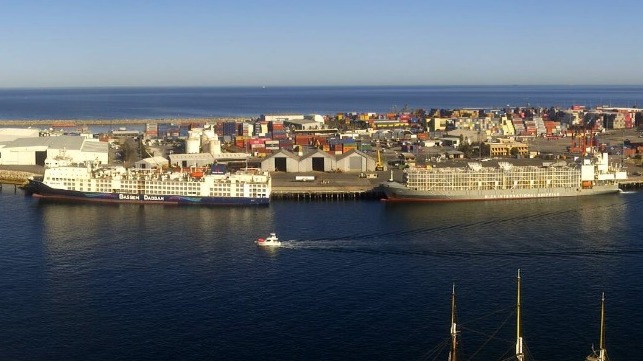Australia Refuses Livestock Carrier to Sail Around Africa to Avoid Houthis

The saga of a shipload of sheep continues as Australian officials have now decided to deny a new export permit for the livestock carrier Bahijah to start a second voyage to Israel this time going around Africa to avoid the danger of a Houthi attack in the Red Sea. The ship has been loaded for more than a month with animal rights groups decrying the fate of the animals and slow decisions by the authorities saying it is further evidence why live export must be discontinued.
“The application submitted on 26 January 2024 for the re-export of livestock onboard the MV Bahijah to Israel via the Cape of Good Hope has not been approved,” Australia’s Department of Agriculture, Fisheries and Forestry said in a statement issued this morning, February 5. “The departmental regulator was unable to be satisfied,” they said that the export rules of Australia would be met by the importing country (Israel) and “the arrangements for the transport of the livestock to their final overseas destination are appropriate to ensure their health and welfare.”
The Bahijah, a 7,00 dwt livestock carrier built in 2010 and registered in the Marshall Islands loaded 12,000 sheep and 1,200 or more cattle at the beginning of 2024 and departed on January 5 for the Middle East. The vessel, however, paused in the Indian Ocean as the attacks intensified in the Red Sea and Houthis vowed to stop all Israeli-related shipping. The ship was rumored to be considering a trip around Africa when the Australian authorities recalled the ship to Fremantle. It arrived offshore Australia on January 29, where it was held for a regulatory ruling.
At the end of last week, the authorities briefly permitted the ship to dock to load additional supplies. In addition, they permitted the exporter to offload the cattle into a biosecurity situation where they are being monitored. The ship, however, then went back to sea for what the authorities called “routine cleaning,” but now they have ordered it to remain offshore.
Today’s decision not to permit the ship to sail around Africa to deliver the sheep to Israel raises further concerns over the fate of the animals. The authorities have reiterated that a veterinarian aboard reports the animals are in good health. Australia requires that a vet and animal handler accompany all live shipments.
“The next steps for the livestock onboard the vessel are commercial decisions for the exporter to make,” the authorities said in their latest statement. “A range of options remain available to the exporter, and the department stands ready to assess any future application submitted by the exporter.”
The Agriculture Department says it “supports a resolution to this matter as quickly as possible” and that it stands ready to respond to any further requests from the commercial exporter.
A second livestock carrier operated by a different company was scheduled to depart Australia at the end of last week also heading to the Middle East. Reports are that the exporter for that shipment has made contingency plans to offload the animals at an alternate location if the ship can not reach its destination.
